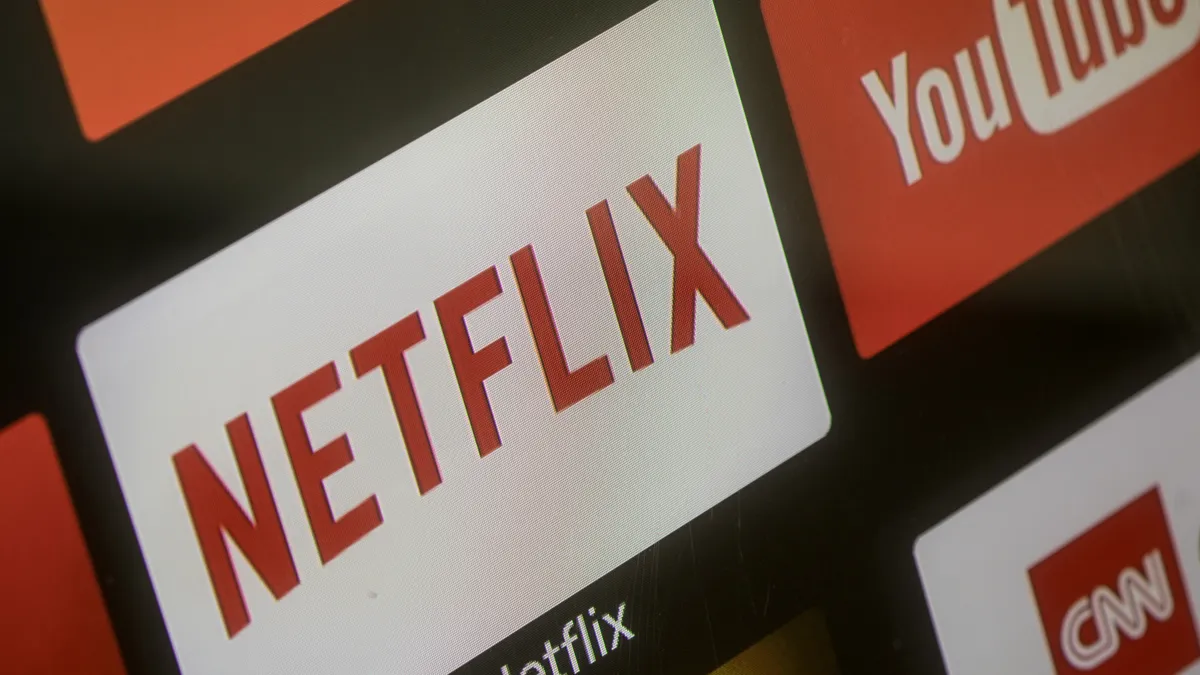Dive Brief:
- Netflix published this month an update to its workplace culture document that, in part, addressed the role of content on its video streaming service that may be considered “provocative.”
- “Not everyone will like—or agree with—everything on our service,” the company said. “As employees we support the principle that Netflix offers a diversity of stories, even if we find some titles counter to our own personal values. Depending on your role, you may need to work on titles you perceive to be harmful. If you’d find it hard to support our content breadth, Netflix may not be the best place for you.”
- The update comes less than a year after a subset of Netflix employees walked out following the company's publication of Dave Chappelle's comedy special "The Closer."
Dive Insight:
The past 12 months have been turbulent for Netflix, with the company facing a declining subscriber count as well as decreased revenue growth. As a result, Netflix has reportedly laid off some 150 U.S. employees.
Media outlets put Netflix under the microscope last fall after the company published a controversial special, “The Closer,” by comedian Dave Chappelle. The special contains commentary many considered harmful to members of the transgender community and elicited criticism from some Netflix employees.
In an internal letter to employees obtained by The Verge, CEO Ted Sarandos defended the company’s decision to continue airing the special.
“Several of you have also asked where we draw the line on hate,” Sarandos wrote. “We don’t allow titles on Netflix that are designed to incite hate or violence, and we don’t believe The Closer crosses that line. I recognize, however, that distinguishing between commentary and harm is hard, especially with stand-up comedy which exists to push boundaries. Some people find the art of stand-up to be mean spirited but our members enjoy it, and it’s an important part of our content offering.”
Sarandos appeared to regret his tone. A little over a week later, the day before employees at the company walked out, he said in an interview with Variety that he “should have led with more humanity” when responding to workers’ complaints.
Other components of the updated culture document touch upon how employees can raise disagreements about issues at the company, informing workers that “it is their responsibility to explain why, ideally in person and in writing.” The company said it relies on decision-makers to consider different opinions, but when a decision is made, “we expect everyone—including those who disagreed—to commit and help make the outcome as successful as possible.”
Worker dissent over company policies has spread to a number of large organizations in and outside of the technology sector. Recently, employees at The Walt Disney Co. walked out over what they perceived as a lack of action by the company in response to the passage of Florida's “Parental Rights in Education” bill. Last year, workers at tech company Basecamp protested the company’s decision to limit political discussion on an internal platform.












